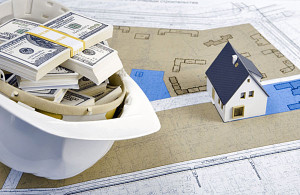Why Your House Is Worth Next To Nothing, And What To Do About It
 Homes are a tricky business. They’re all unique in one way or another. And there are hundreds of factors that come into play when determining their price.
Homes are a tricky business. They’re all unique in one way or another. And there are hundreds of factors that come into play when determining their price.
The problem is that for a lot of these, there isn’t much the average homeowner can do. If your house is a long way from the best schools, this is going to affect its price, unfortunately. The same goes for if you happen to live in an area that has already seen a lot of foreclosures. Sorry, that too is going to cause the value of your house to tank.
Then there are neighborhood problems that can wreak havoc. A bad area with a high crime rate can also reduce the value of your home. And there isn’t anything you can do to stop it (unless you are the criminal).
Finally, there are just bad neighbors. Perhaps your next door neighbour has erected some sort of ostentatious extension that ruins the look of your property. If it’s legal, then there’s not much either you or any future owner can do about it.
It all means that when you find out how much is your house worth today, you might be in for a shock.
That said, many sellers could do a lot better. In fact, some are making outright mistakes when trying to sell their home. Take most bathrooms for example. They’re grimy, dingy places, that don’t have much curb appeal.
Sprucing up the bathroom can help persuade potential buyers that your house is the one for them. Don’t go mad though. You want to decorate the bathroom in neutral colours so that it will appeal to the widest range of people possible.
It’s all about updating the look. Old vinyl flooring is a definite no-no. And these days, so is wallpaper in the bathroom. Leave the wallpaper in the 1970s where it belongs.
The reason that it is so important to focus on the bathroom before you sell is that it is one of the hardest rooms to change. Buyers usually don’t want to have to rip out a bathroom when they move in. They’re rather it served their purposes to begin with.
The same applies to kitchens. Kitchens are a famously hard room to redecorate, especially if that means pulling out kitchen units. But tired old kitchen units are a turn-off for potential buyers. Refacing them, rather than removing them entirely is a cheaper option. So consider this if you are having people to look around.
But if you want to create a truly stunning impression, fitting out a new kitchen may be the only route to go. Just make sure that the increase in the value of your home that results is more than the cost of the new kitchen.
You also want to make sure that there aren’t unsightly stains around the kitchen area, like on the stove splash panel. When buyers look around, they don’t want to see that the house has been lived in by somebody else. They want it to be truly theirs. Clearing up mess helps to improve the appeal of your home markedly.
















